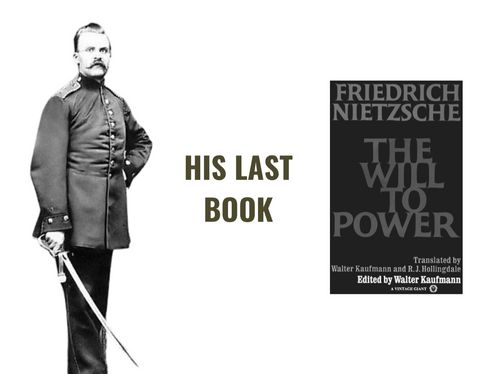Insights from The Will To Power by Nietzsche
Oct 16, 2021 · 2 mins read
0
Share

The Will To Power was published after Nietzsche's death. It's a collection of his unpublished notes. Read on to find out how man has lost his dignity, how Nietzsche predicted the internet, and the flaws of modern intellect👇
Save
Share
An important consequence of the death of God: "Antagonisms arise between the true, the beautiful, and the good." Before, these are united in God. Now, truth is neutered without beauty. Beauty is lost without morality. Morality doesn't convince without an absolute reality.
Save
Share
Another consequence of God's death: "Man has suffered an incredible loss of dignity in his own eyes." He went from playing "the central part and tragic hero in the drama of existence" to being a random mote flying through space.
Save
Share
Nietzsche describes 3 modern vices. First, overwork. To be constantly busy is self-negation - a "will to forget" oneself. Second, curiosity. Vague curiosity about everything, without deep obsessions, goes nowhere Third, sympathy. Sympathy for all is a refusal to rank good & bad.
Save
Share
Nietzsche predicts the internet? He says: In modern times, the "abundance of disparate impressions is greater than ever." "The ability to take initiative" is lost. People are "accustomed to being overwhelmed" and all they can do is "react to external stimuli." Written in 1880s.
Save
Share
A profoundly important question posed by Nietzsche: "Is this modern world of ours a rising civilization or an exhausted one?" This is THE question.
Save
Share
Nietzsche says "the modern intellect" tries to hide its flaws in "moralistic attire." The "inability to affirm or negate" is called tolerance. The "want of personality" is called objectivity. A dull collection of facts is called science - all "addition instead of composition."
Save
Share
Nietzsche hated the bloat of bureaucracies. He writes: "The state has a preposterously fat belly." "Besides those who do the actual work," we see all sorts of useless intermediaries. Life has become expensive because of too many "middlemen."
Save
Share
Nietzsche says that in the 17th century, reason was supreme & the world was knowable through the intellect. In the 18th century, emotions were supreme & the world was knowable through the heart. In the 19th century, man's appetite was supreme - his animal nature became central.
Save
Share
Bottom line. Nietzsche didn't gloat over God's death. He knew there are consequences, both good and bad, of such a profound metaphysical shift. He also saw through modern conceits such as the cult of always being busy, and intellectual indecision pretending to be tolerance.
Save
Share
0